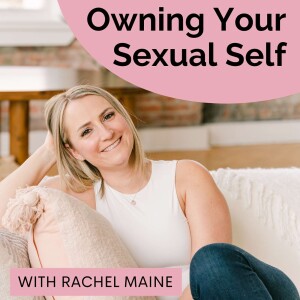
Today we’re talking to my friend and fellow sex therapist Danielle Crotty. We went through the sex therapy and sexual education program at U of M together and we’re sharing our experiences with private practice therapy, the reality of sexual health concerns, and the lack of education.
How did Danielle land in this field?
She started her undergrad in nursing, but realized quickly that was not for her. She ended up taking a sex and gender course and that was where she really felt like that was something she wanted to do. After about 2 years she got her masters in marriage and family therapy. Then she worked for nonprofit agency for over 5 years working general mental health. After going through the for the UofM program, she ultimately moved to a private practice for sex and relationship therapy in Cincinnati.
What are the Primary things Danielle works on with people in her practice?
The practice as a whole sees a variety of people, but she tends to see more couples, traditional and nontraditional, because of her licence in marriage therapy. They also partner with a sexual health practice called HerMD because a lot of women are coming in with sexual health concerns, so we want to make sure we cover the physical side of things as well.
What would the physical side encompass?
A lot of women experience pain during intercourse and they don’t recognize that that’s not normal, your body is meant to experience pleasure not pain. They could be experiencing different physical health dysfunctions that not a lot of women are aware of that are causing this pain. Daniele loves being able to provide education and see the spark in women's eyes when they’re given hope and realize they don’t have to live the rest of their lives like this.
Our goal as sex therapists, or any doctor specializing in sexual health is to create pleasure.
What does she recommend to someone who’s struggling with desire?
There’s a book she recommends called Come as You Are, because we often neglect to recognize the external factors that influence our desire. The book does a great job of explaining external factors or external stressors that are creating a lack of desire for you. It could be something as simple as clothes on the floor or the dogs are barking. Once we know those things, then we know we can do something about them, we can adjust our lifestyle around them or adapt when we’re going to be sexually intimate.
A huge component for a lot of women who have a lack of desire is recognizing that it has nothing to do with you, it has so much more to do with everything going on around you.
In your practice and the clients you’re working with, is there anything that you see people do to get quicker or better results in their work?
Talk about it. So many people are truly shocked about just how much normalizing the conversation and talking about sex can go a really long way. The biggest thing or the first thing people notice when coming to therapy is this is the first time I’ve talked about this, or told my partner about this. Once you start talking about it, the hesitation goes away, and you’re able to talk about sex more freely.
Resources for someone looking to learn more about sexual health education
That Feminist Chick
The Vagina Blog
AASECT
Gottman Cards
Support the show
Connect with Rachel!
Instagram: @The_Rachel_Maine
Website: https://linktr.ee/WellnessSexpertise
YouTube: YouTube.com/@OwningYourSexualSelf
Facebook: Rachel Maine
Email: therachelmaine@gmail.com
More Episodes
 2022-03-07
2022-03-07
 2022-02-21
2022-02-21
 2022-02-14
2022-02-14
 2022-02-07
2022-02-07
 2022-01-31
2022-01-31
 2022-01-24
2022-01-24
 2022-01-10
2022-01-10
 2021-12-20
2021-12-20
 2021-11-29
2021-11-29
 2021-11-22
2021-11-22
 2021-11-15
2021-11-15
 2021-11-08
2021-11-08
 2021-10-25
2021-10-25
Create your
podcast in
minutes
- Full-featured podcast site
- Unlimited storage and bandwidth
- Comprehensive podcast stats
- Distribute to Apple Podcasts, Spotify, and more
- Make money with your podcast
It is Free
- Privacy Policy
- Cookie Policy
- Terms of Use
- Consent Preferences
- Copyright © 2015-2024 Podbean.com





